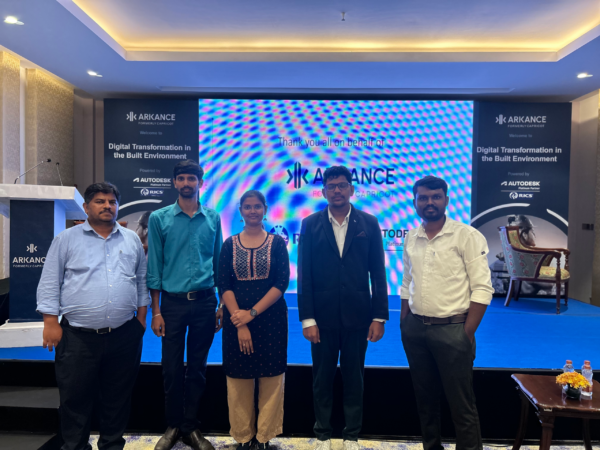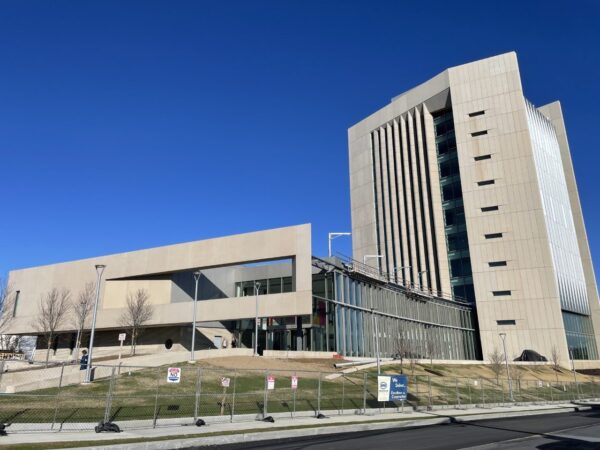
July 15, 2024 | Articles
Construction’s Digital Transformation & The Tools of Modern Project Management

Nestled along with Saudi Arabia, the UAE and Qatar – three of the most active construction markets in the Middle East – Kuwait too has long held a promise of becoming a booming market. And evidence of that was recently in hand with Hill International being awarded two major contracts this summer. The first is an award from the Public Authority for Housing Welfare (PAHW) to provide program management consultancy services to build the South Al Mutlaa City; and the second is a contract placed by the Health Assurance Hospitals Company (Dhaman) to provide project and construction management services for two new hospitals in Kuwait. The initial five-year contract for South Al Mutlaa is worth nearly $79 million for Hill and will entail the construction of a new city of approximately 104 square kms (40 square miles) west of the capital Kuwait City that will be home to about 400,000 residents when completed. The Dhaman contract is for three years, with an estimated value to Hill of $13 million, and will call for the supervising the construction of two 300-bed secondary care hospitals, staff accommodation buildings and parking facilities in Al Ahmadi and Al Jahra. “The Kuwait construction market has seen its ups and downs in the past few years with several promises being held out,” said Nassif Houeis, Hill’s vice president in Kuwait. “But that scenario is now changing with major investments being planned in housing and healthcare and also in power generation sector. About a decade ago, the government was seen as the major source of project activity with the private sector following suit. However, with the global economic crisis of 2008 the private sector took a back seat.”
Under the government’s planned healthcare investments, close to 12 hospitals have already been built or awarded to contractors during the period 2010 to 2015 at a total investment of some $4 billion. They involved providing more than the total of 3,300 beds and included among other facilities, specialized facilities for cancer and orthopedics. “Hill provided its services for nine of those hospitals,” Houeis said, adding the expertise and the reputation that the company built through the execution of those contracts came in handy while being awarded work for the two new hospitals planned by Dhaman. “We have already started mobilization for the two hospitals to be built at Al Ahmadi and Al Jahra and a technical core team has been set up, with TCT assisting us in the design review. We will soon be having 25 of our people dedicated for the project with that number rising further as work progresses.” TCT, or the Technical Core Team, is Hill International’s in-house capability that evaluates and maintains quality standards for projects. “The two hospitals are for secondary treatment and a third one is also planned,” Houeis said. With Kuwait’s indigenous population forecast to reach 2 million by 2026, more secondary care hospitals and primary health clinics in various locations across Kuwait by Dhaman which has been established as a public-private partnership (PPP) under Kuwait’s National Healthcare Expansion Plan. Hill has also started mobilization and began work on setting up a project office for its South Al Mutlaa project, with the company’s senior vice president in Kuwait, James Koch overseeing the start-up of the operations. “Our plan is to have 20 to 25 boots on the ground by end of August with that figure rising to 87 at the peak. The mega development is expected to be completed in five years and one of the biggest challenges to be dealt with will be constructing a city in the desert,” he said. The project will have several main elements: housing; healthcare; power, investments, transportation and educational that will require co-ordination and inter-phasing with major stakeholders including the Ministry of Public Works, Kuwait Environmental Protection Agency and the Ministry of Electricity and Water, to name a few.
Future prospects
As a leading member of OPEC and with one of the largest crude oil reserves after Saudi Arabia, Iran and Russia, Kuwait’s revenue is highly oil dependent. But the continuing low crude prices in the global markets will unlikely come in the way of planned investments. Contracts for the first package that covers the main roads and is worth $1 billion have been awarded on the South Al Mutlaa development and Kuwait construction market will now onwards boom. “For social reasons, the government will not put on hold planned investments as there is a growing local population. The State of Kuwait also has large sovereign funds with deep pockets that they will draw into,” Houeis said. In the power, waste management and wastewater treatment sectors tendering is currently underway for two projects to be built under a PPP or the EPC [engineering, procurement and construction) model. The developments cover a waste-to-energy project and the second a waste water treatment facility and network, he said. With new projects being rolled out, the mindset of the government is also changing. “Kuwait has a large pool of well qualified engineers and most government projects were managed in house by the Ministry of Public Works. But since 2015 we see PM [project management] service invitations, due to a change in the attitude and conviction of the ministry about the values that a project manager brings on board,” he said. With its global expertise and a large Middle East presence, Hill International is well placed to pursue major opportunities that will emerge in Kuwait. “We set up an office in Kuwait in 2004 and since then our focus has been on business development and building relations. That is paying off now. We have about 10 people now in Kuwait City and that will grow to 30 to 40 in a few weeks and increase exponentially,” Houeis said. For its part, Hill is already off to a healthy start with its South Al Mutlaa contract being one of the largest consultancy contracts in Kuwait. Also, outside of the oil and gas sector, Hill is currently the largest project management entity in Kuwait outside the oil and gas sector
By Ashok Dutta
Share

July 15, 2024 | Articles
Construction’s Digital Transformation & The Tools of Modern Project Management

July 10, 2024 | Articles
GC/CM at Post Falls: Managing Avista’s North Channel Dam Rehabilitation Project

June 23, 2024 | Articles
Irv Richter – An Innovator, A Pioneer, A Leader (1944 – 2024)

June 14, 2024 | Articles
Environment of Care Standards – Meeting the Challenge (Part Two)

June 13, 2024 | Articles
PMO for Public Transit Project Success: The Reopening of Philadelphia’s Franklin Square Station

June 7, 2024 | Articles

May 17, 2024 | Articles
Hill Interim Federal Market Sector Leader Jane Penny Receives Golden Eagle Award

April 11, 2024 | Articles
A Model Move: Managing Move-In at the Sylvia H. Rambo U.S. Courthouse